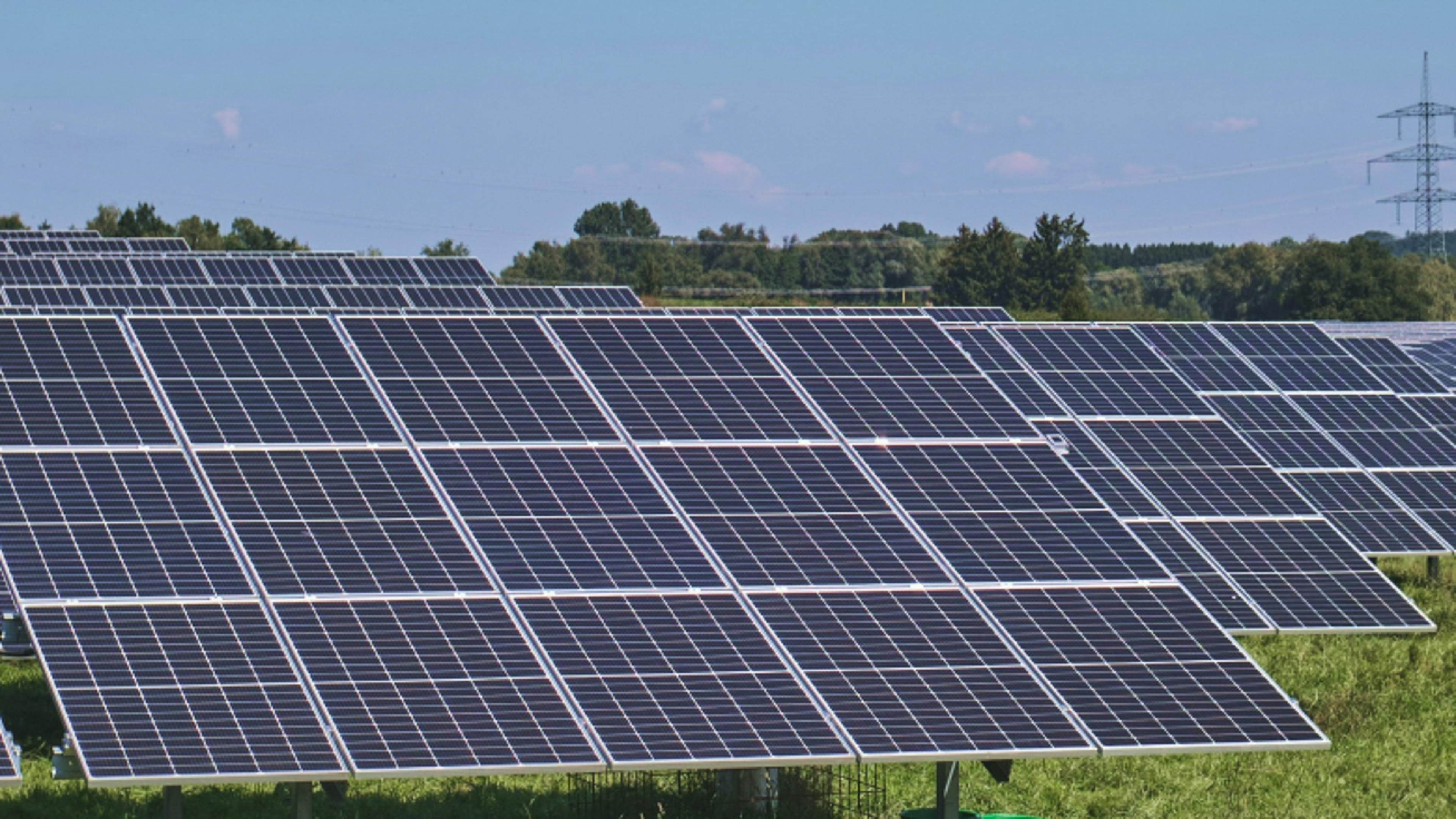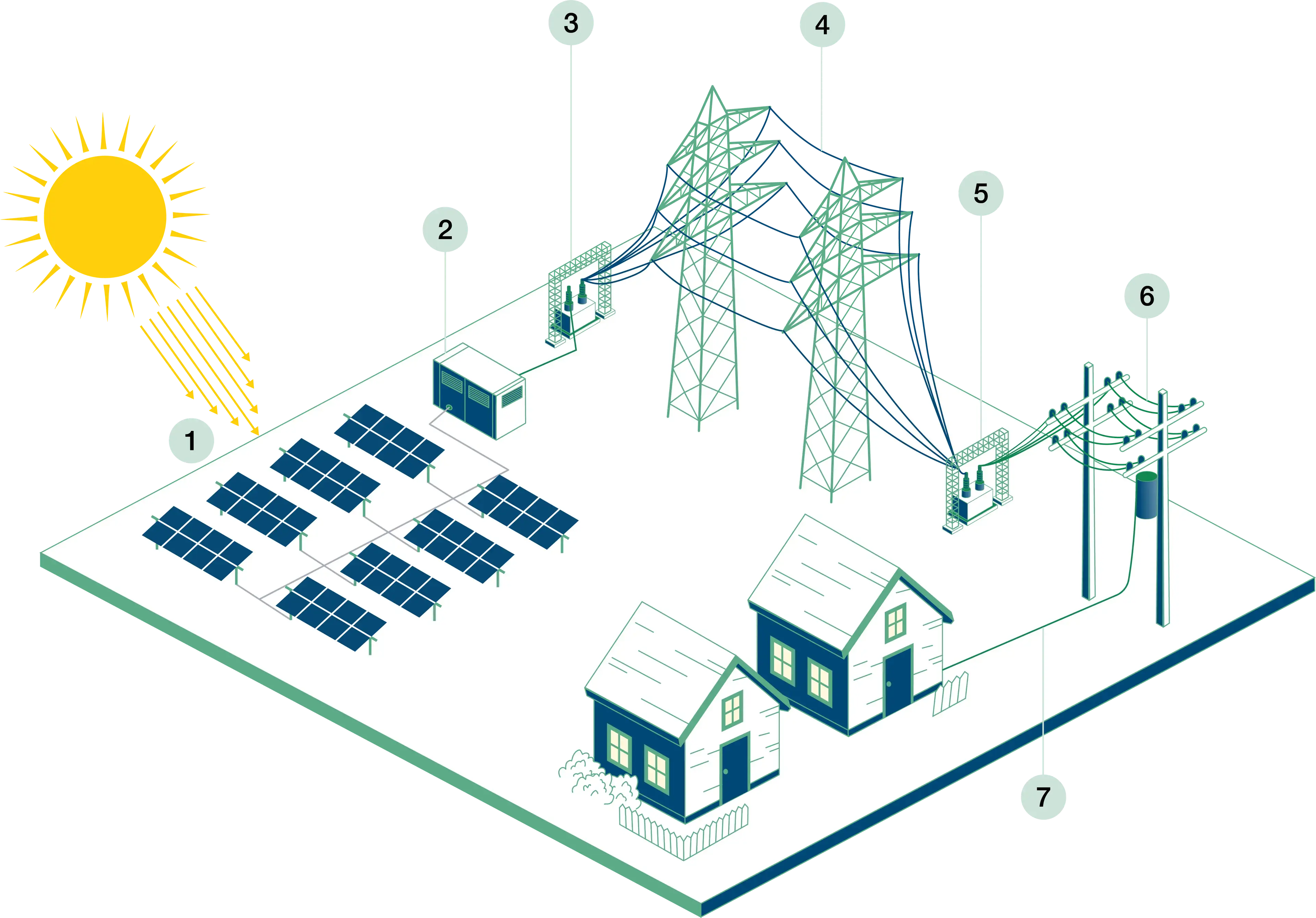
Why Solar
Why Solar
What you should know about solar energy
What you should know about solar energy
Solar energy provides affordable and reliable power to homes and communities. Invenergy has a portfolio of solar projects worldwide.
How Solar Energy Works
- 1 Sunlight hits the solar panels.
- 2 Direct current (DC) flows from the panels to an inverter that turns it into alternating current (AC).
- 3 Transformer increases voltage of electricity.
- 4 Electricity travels through transmission lines.
- 5 Transformer decreases voltage of electricity.
- 6 Electricity travels through collection lines.
- 7 Electricity is delivered to customers.

Benefits of Solar Energy
Solar energy provides many advantages because of its accessibility around the world. Learn more about solar energy’s benefits.
Job Creation
Community Investment
Supports Energy Independence
Protecting Family Farmland
Stable Prices
Reliable Energy Resource
Public Health Benefits
Emission-Free Energy
Saving Water Resources
Explore Invenergy's solar portfolio
Invenergy has developed more than 7 gigawatts of solar energy across more than 55 projects. Find out more about our successful track record in solar energy.
Learn more about solar energy


